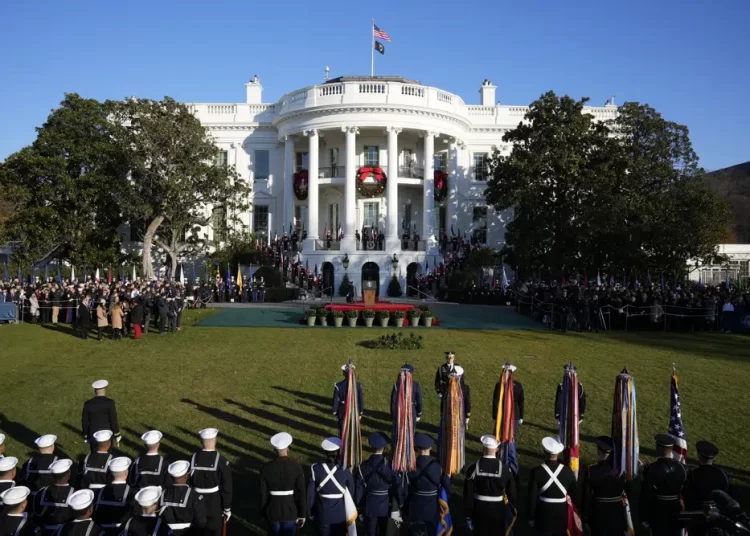WASHINGTON — Presidents Joe Biden and Emmanuel Macron are celebrating the long-standing US-French relationship, but these are friends with differences. The French leader is using his visit to Washington to sharply criticize aspects of his ally’s signature climate law as a bad deal for Europe, according to AP.
Biden was set to honour Macron with the first state dinner of his presidency on Thursday. First, the presidents will hold talks in the Oval Office that officials from both sides said were expected to largely center on efforts to stay united in their response to Russia’s war in Ukraine and to coordinate their approach to an increasingly assertive China.
Hundreds of people gathered on the South Lawn on a sunny but chilly morning for a pomp-filled official arrival ceremony to include a 21-gun salute and review of troops. Ushers distributed small French and American flags to the guests.
Macron has made clear that he and other European leaders are concerned about the incentives in a new climate-related law that favor American-made climate technology, including electric vehicles.
He criticised the legislation, known as the Inflation Reduction Act, during a luncheon Wednesday with US lawmakers and again during a speech at the French Embassy. Macron said that while the Biden administration’s efforts to curb climate change should be applauded, the subsidies would be an enormous setback for European companies.
“The choices that have been made … are choices that will fragment the West,” Macron said. He said the legislation “creates such differences between the United States of America and Europe that all those who work in many companies (in the US), they will just think, ‘We don’t make investments any more on the other side of the Atlantic.’”
He also said major industrial nations need to do more to address climate change and promote biodiversity.
In an interview that aired Thursday on ABC’s “Good Morning America,” Macron said the US and France were working together well on the war in Ukraine and geopolitics overall, but not on “some economic issues.” The US climate bill and semiconductor legislation, he said, were not properly coordinated with Europe and created “the absence of a level playing field.”






Discussion about this post